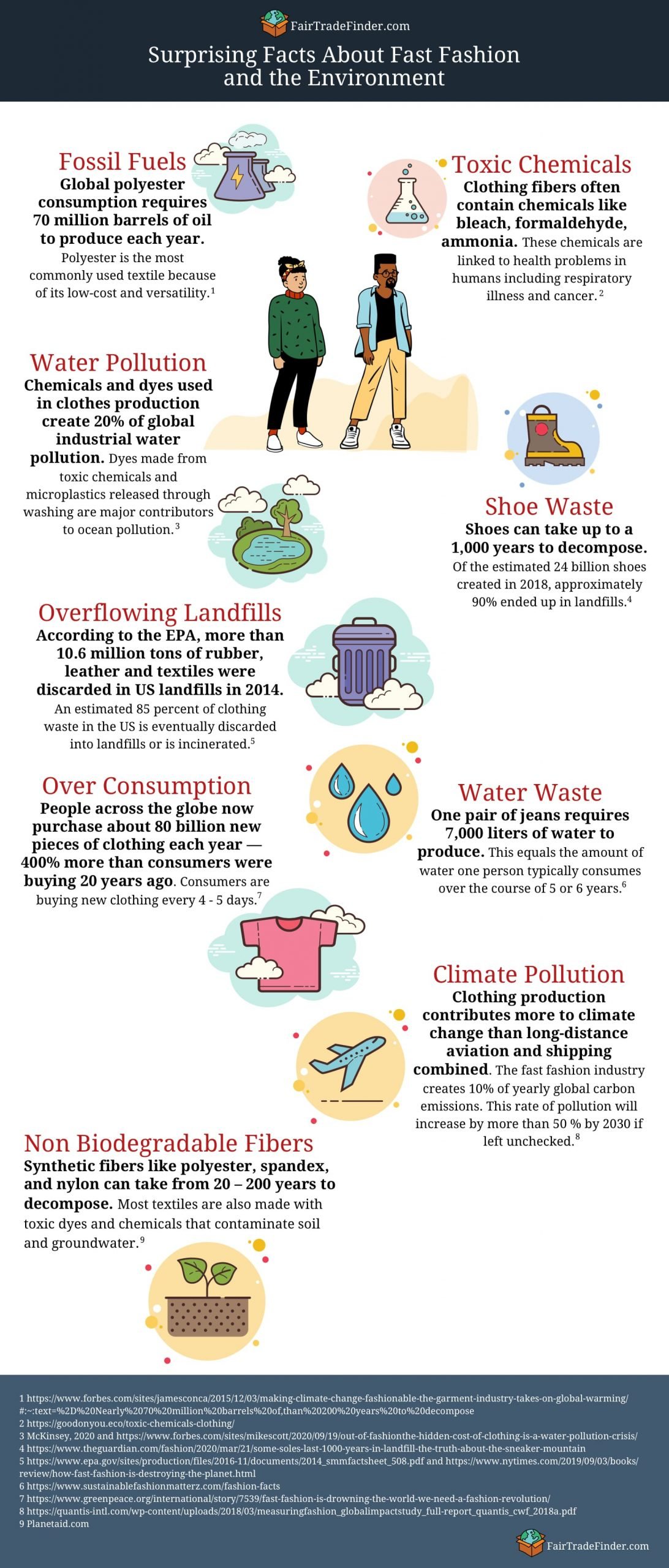The average person shopping for clothing and shoes rarely takes into consideration the impact their purchases have on the natural environment. This is despite the fact that people are consuming and discarding more clothes than ever before in the history of mankind. As consumers purchase considerably more clothing on an annual basis compared to 50 years ago, textiles are produced to be cheaply acquired and quickly disposed of.
This trend is known as “fast fashion”. As defined by Wikipedia, fast fashion is a process of “replicating catwalk trends and high-fashion designs, and mass-producing them at low cost.” While this enables consumers to quickly expand their wardrobes with an array of styles and looks at a low cost, it also creates ever-growing quantities of trash, pollution and the overconsumption of resources.
The consequences of convenience have an outsized impact on the planet. Consumers now purchase about 80 billion new pieces of clothing each year — 400% more than 20 years ago. As a result of the convenience and cheap prices resulting from “Fast Fashion”, shoppers are buying new clothing every 4 – 5 days.
In response to the challenges presented by fast fashion, innovation solutions have been developed in the form of sustainable clothing brands, organic textiles, and vegan sneakers, among other ideas. These new approaches prioritize higher quality, non-toxic materials, ethical labor standards, and environmentally conscious manufacturing.
The good news is that large brands are starting to build sustainable practices into their business model. There are also a number of steps that smaller fashion shops are taking to build green processes into their supply chain.
At the core of the challenge we currently face is the need for people to consume far less, to purchase sustainable, ethically produced items with a long lifespan, and to recycle clothing and shoes rather than simply throw them away. As a society, we need to fundamentally change our perception of consumption and realize that in terms of planet earth, less is truly more.




Kristina,
You have well researched into the adverse environmental and health effects of the polyester fabric. Let us hope that the ‘sustainable practices’ incorporated by the big fashion clothing brands are also introduced by the smaller ones. This should become a universal trend.
Take Care
Rajat